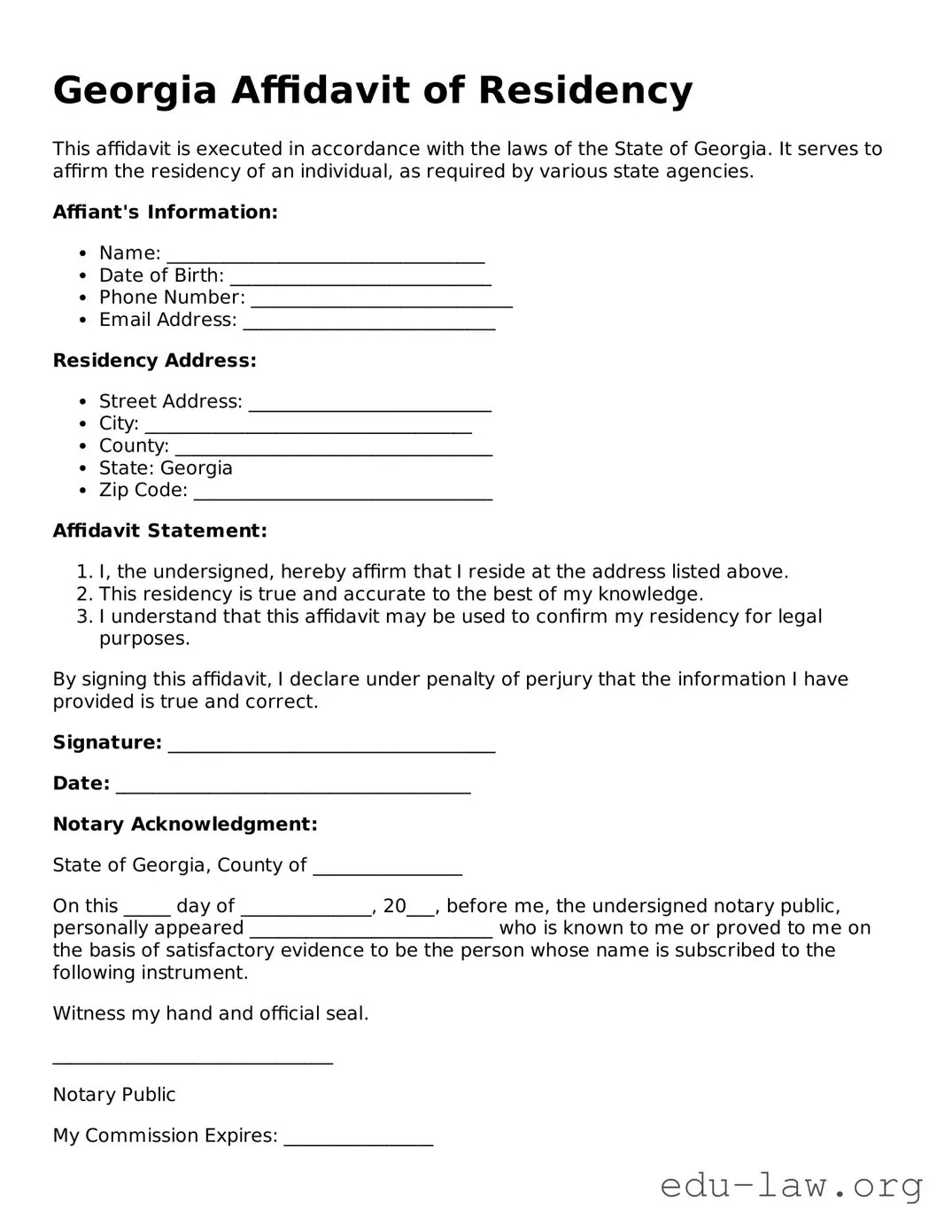Georgia Affidavit of Residency
This affidavit is executed in accordance with the laws of the State of Georgia. It serves to affirm the residency of an individual, as required by various state agencies.
Affiant's Information:
- Name: __________________________________
- Date of Birth: ____________________________
- Phone Number: ____________________________
- Email Address: ___________________________
Residency Address:
- Street Address: __________________________
- City: ___________________________________
- County: __________________________________
- State: Georgia
- Zip Code: ________________________________
Affidavit Statement:
- I, the undersigned, hereby affirm that I reside at the address listed above.
- This residency is true and accurate to the best of my knowledge.
- I understand that this affidavit may be used to confirm my residency for legal purposes.
By signing this affidavit, I declare under penalty of perjury that the information I have provided is true and correct.
Signature: ___________________________________
Date: ______________________________________
Notary Acknowledgment:
State of Georgia, County of ________________
On this _____ day of ______________, 20___, before me, the undersigned notary public, personally appeared __________________________ who is known to me or proved to me on the basis of satisfactory evidence to be the person whose name is subscribed to the following instrument.
Witness my hand and official seal.
______________________________
Notary Public
My Commission Expires: ________________
